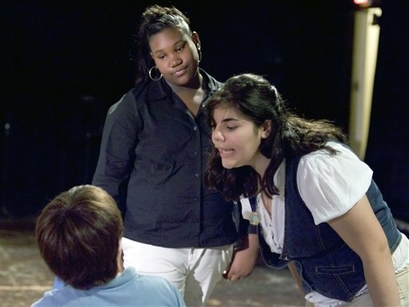 CLICK to read the whole article: "Kids who get bullied and snubbed by peers may be more likely to have problems in other parts of their lives, past studies have shown. And now researchers have found at least three factors in a child's behavior that can lead to social rejection.
CLICK to read the whole article: "Kids who get bullied and snubbed by peers may be more likely to have problems in other parts of their lives, past studies have shown. And now researchers have found at least three factors in a child's behavior that can lead to social rejection.The factors involve a child's inability to pick up on and respond to nonverbal cues from their pals.
In the United States, 10 to 13 percent of school-age kids experience some form of rejection by their peers. In addition to causing mental health problems, bullying and social isolation can increase the likelihood a child will get poor grades, drop out of school, or develop substance abuse problems, the researchers say.
'It really is an under-addressed public health issue,' said lead researcher Clark McKown of the Rush Neurobehavioral Center in Chicago.
And the social skills children gain on the playground or elsewhere could show up later in life, according to Richard Lavoie, an expert in child social behavior who was not involved with the study. Unstructured playtime - that is, when children interact without the guidance of an authority figure - is when children experiment with the relationship styles they will have as adults, he said.
Underlying all of this: 'The number one need of any human is to be liked by other humans,' Lavoie told LiveScience. 'But our kids are like strangers in their own land.' They don't understand the basic rules of operating in society and their mistakes are usually unintentional, he said."


